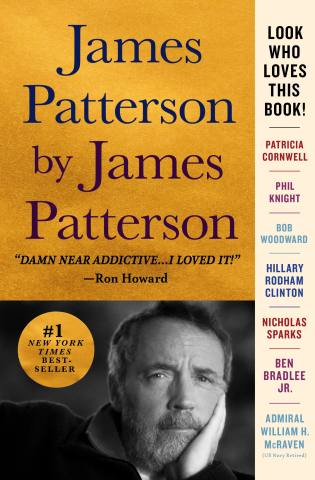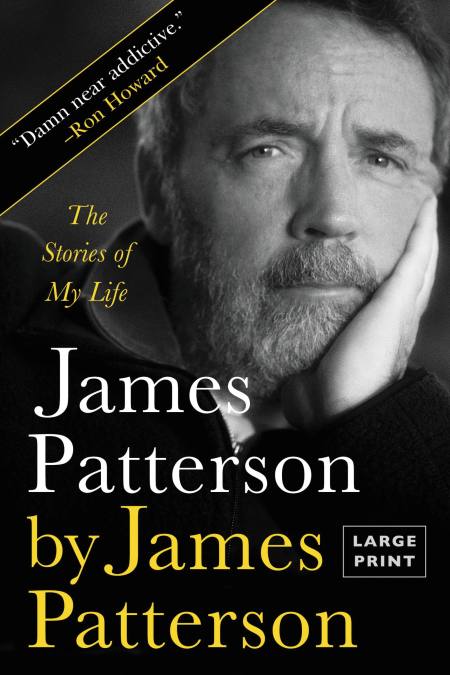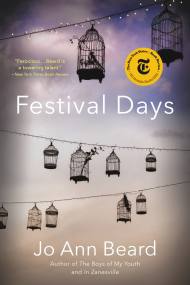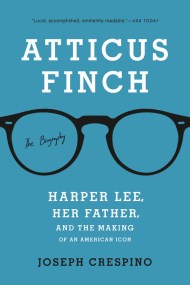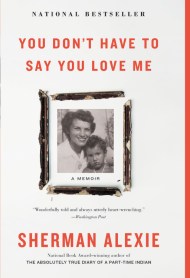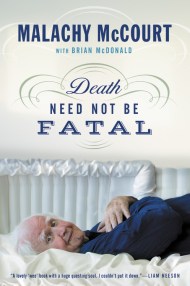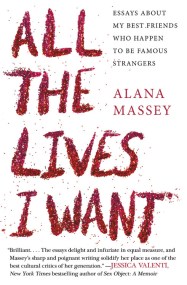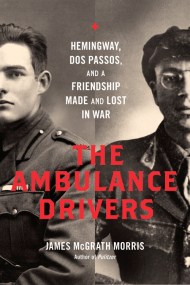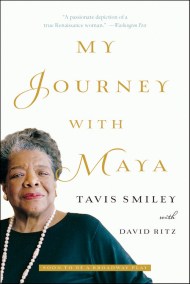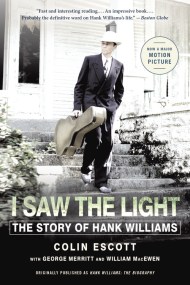Shopping Cart
What's Inside
I lived with Jane Hall Blanchard for seven years, until she died at thirty-nine. Up until the time I fell for Sue Solie and married her, Jane was the love of my life.
The truth is, Jane totally saved me. She turned me around, turned my life around, changed my view of myself. I was basically this insecure knucklehead from upstate, and I didn’t really know how to behave in polite society, at least not in New York City society, not even while I was rising fast at J. Walter Thompson and writing novels on the side. Jane’s family had some money and some manners and, most important, confidence. And Jane was always so considerate, so human, never impatient with me.
Early on in our relationship, she asked me to go to a four-star French restaurant with her. Once we were seated, she could tell I was uncomfortable. It wasn’t hard to figure out. My body was as stiff as a mannequin in Macy’s window. I was extremely quiet and had trouble forcing a smile. I didn’t know much about French menus and I honestly didn’t know how to act in this very formal, upscale Manhattan eating place.
It was Jane’s favorite restaurant in New York, and she wanted to share it with me, but she was cool about my uneasiness. She had ordered some kind of French stew, her favorite dish there. Suddenly, she plopped her face down into the stew and came up with brown goop all over her nose, cheeks, and mouth. Then Jane said to me, “You need to know something, Jimmy. This is our place. This is our restaurant. We belong here.”
She didn’t say it loudly, and she didn’t lower her face into the plate in a way that would offend anyone around us. Her movie-worthy gesture was just for me.
This is our place. We belong. You belong. So chill out.
And Jane did it in such a kind way, with her usual humor. There was no implied criticism. That’s the kind of person she was.
A while later, I did a year in therapy. It was valuable as hell. I saw a terrific doctor, a great, smart guy to talk to, once a week. Ultimately, he became a friend. After I stopped seeing him as a doctor, we’d go out to lunch once or twice a month. He even paid half the time. Maybe 40 percent of the time.
He got me more in touch with myself. I had some anger issues and he helped me see that the anger mostly had to do with my father. He helped me understand that the way I was acting wasn’t really me, it was my father. I also realized I didn’t have to blame my father. My poor dad had his own tough issues and probably felt he was doing the best he could. The year of therapy helped me understand that I was, well, lovable—not because I was first in my class, not because I was successful as hell, but because I was me. Basically, a reasonably nice person who mostly tries to do the right thing.
And that was another thing about Jane. She loved me. I couldn’t help wondering, Why? But she did.
Early on in our relationship, we took it slow. Jane and I would get together after work. We’d go to a movie, go to a restaurant, or just do nothing. She did some home cooking. But every time she’d see me, she would totally light up. She’d wave both arms over her head. She’d call out my name. Even on a crowded New York street. She could be silly and get me to be silly and give her a big smile. I’m not one of the world’s best smilers, but Jane could get me smiling every time. That smile lasted for seven years.
***
When Jane and I started going out, she was a pack-a-day smoker. My parents both smoked, so I was accustomed to it, but I didn’t like it. I could never get used to that awful, acrid smell. One morning before we went to work, Jane announced, “I’m not going to smoke anymore. I’m done with that filthy habit. I’m finished.” She was going to do it cold turkey too.
To celebrate, I cooked dinner that night. To put it mildly, I’m not the greatest cook, but I prepared what was, for me, a gourmet meal. I got out Jane’s good silver, lit half a dozen candles, the whole romantic shebang. It was a big dinner for us: roast chicken, haricots verts, mashed potatoes, gravy, even a chocolate cake made from scratch—my grandmother’s recipe.
We sat down at the table, and Jane’s smile lit up the room. This was perfect!
She took one bite of the chicken and burst into tears. I turned white and started apologizing. How had I screwed up roast chicken so badly? Jane dashed across the living room and grabbed her purse. She lit up a cigarette. “I thought I could. I thought I was ready. I’m so sorry, Jimmy.”
Two weeks later, she did quit, and she stayed with it. Jane never smoked again.
One Saturday morning not long after that, Jane and I went out to breakfast near where we lived on the West Side of New York. After coffee, bagels, and eggs, we stopped at the post office on Columbus, the Ansonia Station.
Once we were inside, Jane fell to the floor and started shaking terribly. She was in great pain. We both thought she was dying. A nurse happened to be in the post office. She rushed over to help Jane. “I think your”—I don’t know if she said wife or friend—“is having a seizure.”
Jane finally stopped shaking and she managed to sit up on the floor, but we were both terrified. And totally mystified. We started consulting doctors around New York. We found out that Jane had a brain tumor.
She had surgery at New York Hospital, one of the best places in the world for cancer treatment. They removed most of the tumor, but they couldn’t get it all. We were told that Jane was going to die, probably within the next year. She was thirty-six.
She never complained, never shook her fist at the heavens, never once asked, Why me? She spent weeks and sometimes months in the hospital during the two and a half years that she lived. She had lots and lots of visitors and she never wanted to bring her friends and family down, not even while she was getting chemo and her hair was falling out. She had a collection of funny, goofy-looking hats that she’d wear. A different hat almost every day. The hat-of-the-day never failed to get her visitors laughing and then Jane would laugh too. That’s just who she was.
I had never been more in love with anybody. I was wildly in love with this woman who had to use a walker or wheelchair and had clumps of hair sprouting all over her head. It taught me something about the importance we tend to put on physical appearance. Imagine going on a blind date, and the person who shows up is using a walker and losing her hair. Not too many of us would have a second date. But during those days, I was more in love with Jane than I’d ever been. She was my best friend, the love of my life up to that point, and she was a saint.
During that time, I was running the Burger King business, which was the biggest account at J. Walter Thompson. After Jane got sick with that hellacious disease, I refused to travel. I wouldn’t go on film shoots. I wouldn’t go to Miami for meetings at Burger King headquarters. I convinced them that the business ran best with me staying in the ad factory, making sure that the work was as good as it could possibly be. The Burger King folk—especially Kyle Craig and Jeff Campbell—were good clients, good people. Besides that, they all loved Jane too.
***
I wasn’t really surprised that Jane beat the expectations of her doctors. No matter the setbacks—including three long stays at New York Hospital—she was always upbeat. Her spirit was amazing. I don’t know how she did it, but she was a role model for everybody who knew her. Several of our friends in those days named their babies “Jane” in her honor.
Jane’s parents had a place on the Jersey Shore. That’s where Jane spent her last summer. She was in a wheelchair most of the time, but she loved being at the ocean. I would come to the shore every weekend and try to make it a three-day weekend if I could.
One Sunday, I was going up the beach road in a taxi, pointed toward the train station in Mantoloking, heading to New York. I couldn’t help looking back through the cab’s rear window. I didn’t want to take my eyes off Jane.
She was out on the street in her wheelchair, smiling, waving to me, getting smaller and smaller and smaller.
I never forgot that image. Not even now. I’m still watching her get smaller. Every time I had to leave Jane, I wondered if I would ever see her again.
Her neurologist at New York Hospital, Frank Petito, was a great guy and he loved Jane. He would arrive at his office early in the morning, see patients, then routinely work until ten o’clock at night. At one point during Jane’s illness, I developed Bell’s palsy and Frank saw me as a patient.
After he finished for the night, he usually came to Jane’s room. He’d put his feet up on her bed, sit with us, and we’d talk about anything and everything and nothing at all for ten or fifteen minutes. Talking with Jane and me was his way to unwind. Also, she usually kept Godiva chocolates hidden away for Petito. She knew his favorites. Jane knew everybody’s favorites.
During this period, every day was on the scary side of tense and dramatic. My blood pressure had always been normal, but suddenly it shot up 30 to 40 points. I got that scary Bell’s palsy for a couple of weeks.
Then, one morning when I was at work, I got a call from the hospital. Jane’s younger sister, sweet, sweet Sarah, was on the line. She told me that Jane was having a bad time that morning. This was probably it. I rushed uptown to New York Hospital. Sarah and Jane’s mother, Anne, was also in her room. So was Dr. Frank Petito. They all seemed so small, ethereal, almost otherworldly.
I’m so glad I got there when I did. I was holding Jane’s hand when she passed. When she heard me whispering up against her cheek, she squeezed my hand twice. Then she was gone. I can barely write these words, even now, after all this time.
Praise
James Patterson by James Patterson
The Stories of My Life
Description
How did a kid whose dad lived in the poorhouse become the most successful storyteller in the world? This “fizzing, funny, often deeply moving” (Daily Mail) #1 New York Times bestselling memoir is “damn near addictive. I loved it . . . that Patterson guy can write!” (Ron Howard)
- On the morning he was born, he nearly died.
- His dad grew up in the Pogey– the Newburgh, New York, poorhouse.
- He worked at a mental hospital in Massachusetts, where he met the singer James Taylor and the poet Robert Lowell.
- While he toiled in advertising hell, James wrote the ad jingle line “I’m a Toys ‘R’ Us Kid.”
- He once watched James Baldwin and Norman Mailer square off to trade punches at a party.
- He’s only been in love twice. Both times are amazing.
- Dolly Parton once sang “Happy Birthday” to James over the phone. She calls him J.J., for Jimmy James.
